Molson Coors boss Mark Hunter has been on the lookout for new beers – and just bagged Corona Extra. He tells Anna-Marie Julyan it will help transform the company’s fortunes
Mark Hunter is not happy.
The Molson Coors UK CEO has big news. He's just bought the UK rights for Mexican beer Corona Extra and this is the day he wants to share it with the world. Trouble is, The Grocer broke it online the day before. The interview hasn't got off to the best of starts. Or so it appears.
He suddenly loses the scowl and laughs. The man who has worked in British brewing for 21 years and pulls no punches on issues such as below-cost booze has been winding me up it seems. Nothing but nothing, he says, can spoil the mood he's in having acquired his latest brand.
It's easy to see why he's so delighted. Molson Coors will give Mexican Corona owner Modelo the capacity it needs to further the brand's growth in Britain, while the brew will add another weapon to Molson Coors' arsenal a weapon Hunter could certainly do with at the moment.
Carling, Molson Coors' flagship brew, has seen sales slump 5.2% by value and 4% by volume in the past year [SymphonyIRI 52w/e 27 August]. It's a worrying underperformance compared with the overall UK beer market, which climbed 2.4% in value to £3.5bn and inched up 0.8% in volume.
Ominously, this year we are expected to drink 20% less beer than we did in 2005. "If that isn't a call to action for the industry I don't know what is," says Hunter in a frank interview with The Grocer.
That's why in recent years Molson Coors has been quietly amassing a cache of what it calls "world beer brands", he says. Last year, Molson Coors added Indian beer Cobra and Thai brew Singha to its portfolio of world beers, which already included Belgian-style wheat beer Blue Moon and Kasteel Cru, a lager brewed in the Alsace with Champagne yeast, which now also boasts a rosé version. As well as Corona Extra, the deal with Modelo brings Mexican brands Modelo Especial, Pacífico, and Negra Modelo under Molson Coors' wing.
The new brands are all about driving value into his portfolio, says Hunter, who in a bid to protect value has resolutely eschewed deep cut promotions on mainstays Carling and Grolsch, despite the inevitable impact on sales.
"If we don't take a stand there isn't a cat in hell's chance of the beer category getting to where it needs to be in terms of being respected and revered. If we go back to 1970, beer was 70% of all alcohol consumed in the UK. It's now about 40%. From 2005 to the end of 2010, a further 18% of beer volume in the UK will have disappeared."
With cider, spirits and wine all looking to guzzle more of its market share, beer needs to focus on innovative NPD and enhancing brand reputation, says Hunter. It also needs to do more to celebrate its diversity.
There is plenty of that in evidence in Molson Coors' portfolio, which now spans everything from standard lager Carling and low-carb offering Coors Light to Grolsch wheat beer and the apple of many a real ale enthusiast's eye, Worthington White Shield IPA. Whatever you do though, don't call it "real ale".
"The notion that there's such a thing as real ale implies there's something called unreal ale," says Hunter. "The last thing the beer industry needs to be doing is describing itself like that." (CAMRA take note).
There is such a wealth of variety in beer, he adds, there is real scope to make it the drink of choice at a much wider range of occasions and for a wider range of people. With this in mind, Molson Coors has set up the Bitter Sweet Partnership in a bid to attract more women. "One of the opportunities for beer is to make it more occasion-specific, so we could promote beer with food for example."
There's still a "big prize to be had" in terms of innovation, adds Hunter. "I struggle to point to any meaningful innovation that the beer industry has landed that's created any real change, so that is an opportunity for us. Most innovations we've seen in the marketplace in the past few years are different abv versions of existing brands. It's not really innovation." Hence, Molson Coors UK has doubled the size of its innovation group in the past six months, and will launch new products within the year.
Another focus will be on recovering the fortunes of the ailing Carling brand through new extensions. "Our challenge is to evolve Carling and keep it relevant," says Hunter. "We probably have an opportunity to do a better job in terms of Carling sub-brands and that's something we are looking at."
Carling sales are heading south at a much faster rate than its two key rivals Stella Artois and Foster's, which saw volumes fall by 1% and 0.2% respectively last year [Symphony IRI]. And Molson Coors, like other British brewers, is struggling under the weight of a high tax burden and cutthroat competition from other categories. So the pressure is on. In typically direct style Hunter admits that despite selling more beer in the UK than in Canada, the latter still makes five times the profit of the UK.
"The UK is probably one of the most challenging beer markets in the world for a whole variety of reasons so people do understand," he says, pointing out that the company was back in growth last year after four years holding its profit position. "There's a lot of confidence in what we're doing and we're still investing, for example in the Cobra Beer Partnership [a joint venture responsible for the brewing, distribution and marketing of the brew in the UK]. The Corona deal is a real sign of Grupo Modelo's confidence in the ability of our organisation."
Hunter promises to invest "heavily" in Corona in coming months. And commentators say the tactic could leave Molson Coors quids in.
Graham Archibald, senior national account manager at wine and beer importer Morgenrot Group, expects demand for Latin beer to boom in the coming years as increasingly adventurous drinkers look for a wider range of brews.
"Molson Coors is looking to take advantage of this trend for Latin beer," he says. "Quality is the key now, as opposed to quantity, with consumers willing to experiment with genuine world beers and more importantly pay a premium for them."
The great world beer hunt could be just beginning.
Mark Hunter snapshot
Age: 47
Career: Hunter grew up in the West of Scotland and worked for Hallmark Cards until 1986, when he joined Bulmers. In 1989 he went to Bass brewers as trade marketing manager for wines and spirits. From 1991 he worked in beer, becoming marketing director at Bass in 1997. In 2005 Coors and Molson merged and Hunter went to Canada where he ran sales and marketing. He returned to the UK and the post of CEO in 2007.
Hobbies: Music is a passion for Hunter, with the punk and new wave movements of the 70s remaining favourites. He now likes indie music and enjoys watching sport and playing the occasional game of golf and football.
On his leadership style: "I try to think through a lens of three different things. Are we working on the right stuff? Have we got the right team? And have we got a culture of execution?"
Mark Hunter is not happy.
The Molson Coors UK CEO has big news. He's just bought the UK rights for Mexican beer Corona Extra and this is the day he wants to share it with the world. Trouble is, The Grocer broke it online the day before. The interview hasn't got off to the best of starts. Or so it appears.
He suddenly loses the scowl and laughs. The man who has worked in British brewing for 21 years and pulls no punches on issues such as below-cost booze has been winding me up it seems. Nothing but nothing, he says, can spoil the mood he's in having acquired his latest brand.
It's easy to see why he's so delighted. Molson Coors will give Mexican Corona owner Modelo the capacity it needs to further the brand's growth in Britain, while the brew will add another weapon to Molson Coors' arsenal a weapon Hunter could certainly do with at the moment.
Carling, Molson Coors' flagship brew, has seen sales slump 5.2% by value and 4% by volume in the past year [SymphonyIRI 52w/e 27 August]. It's a worrying underperformance compared with the overall UK beer market, which climbed 2.4% in value to £3.5bn and inched up 0.8% in volume.
Ominously, this year we are expected to drink 20% less beer than we did in 2005. "If that isn't a call to action for the industry I don't know what is," says Hunter in a frank interview with The Grocer.
That's why in recent years Molson Coors has been quietly amassing a cache of what it calls "world beer brands", he says. Last year, Molson Coors added Indian beer Cobra and Thai brew Singha to its portfolio of world beers, which already included Belgian-style wheat beer Blue Moon and Kasteel Cru, a lager brewed in the Alsace with Champagne yeast, which now also boasts a rosé version. As well as Corona Extra, the deal with Modelo brings Mexican brands Modelo Especial, Pacífico, and Negra Modelo under Molson Coors' wing.
The new brands are all about driving value into his portfolio, says Hunter, who in a bid to protect value has resolutely eschewed deep cut promotions on mainstays Carling and Grolsch, despite the inevitable impact on sales.
"If we don't take a stand there isn't a cat in hell's chance of the beer category getting to where it needs to be in terms of being respected and revered. If we go back to 1970, beer was 70% of all alcohol consumed in the UK. It's now about 40%. From 2005 to the end of 2010, a further 18% of beer volume in the UK will have disappeared."
With cider, spirits and wine all looking to guzzle more of its market share, beer needs to focus on innovative NPD and enhancing brand reputation, says Hunter. It also needs to do more to celebrate its diversity.
There is plenty of that in evidence in Molson Coors' portfolio, which now spans everything from standard lager Carling and low-carb offering Coors Light to Grolsch wheat beer and the apple of many a real ale enthusiast's eye, Worthington White Shield IPA. Whatever you do though, don't call it "real ale".
"The notion that there's such a thing as real ale implies there's something called unreal ale," says Hunter. "The last thing the beer industry needs to be doing is describing itself like that." (CAMRA take note).
There is such a wealth of variety in beer, he adds, there is real scope to make it the drink of choice at a much wider range of occasions and for a wider range of people. With this in mind, Molson Coors has set up the Bitter Sweet Partnership in a bid to attract more women. "One of the opportunities for beer is to make it more occasion-specific, so we could promote beer with food for example."
There's still a "big prize to be had" in terms of innovation, adds Hunter. "I struggle to point to any meaningful innovation that the beer industry has landed that's created any real change, so that is an opportunity for us. Most innovations we've seen in the marketplace in the past few years are different abv versions of existing brands. It's not really innovation." Hence, Molson Coors UK has doubled the size of its innovation group in the past six months, and will launch new products within the year.
Another focus will be on recovering the fortunes of the ailing Carling brand through new extensions. "Our challenge is to evolve Carling and keep it relevant," says Hunter. "We probably have an opportunity to do a better job in terms of Carling sub-brands and that's something we are looking at."
Carling sales are heading south at a much faster rate than its two key rivals Stella Artois and Foster's, which saw volumes fall by 1% and 0.2% respectively last year [Symphony IRI]. And Molson Coors, like other British brewers, is struggling under the weight of a high tax burden and cutthroat competition from other categories. So the pressure is on. In typically direct style Hunter admits that despite selling more beer in the UK than in Canada, the latter still makes five times the profit of the UK.
"The UK is probably one of the most challenging beer markets in the world for a whole variety of reasons so people do understand," he says, pointing out that the company was back in growth last year after four years holding its profit position. "There's a lot of confidence in what we're doing and we're still investing, for example in the Cobra Beer Partnership [a joint venture responsible for the brewing, distribution and marketing of the brew in the UK]. The Corona deal is a real sign of Grupo Modelo's confidence in the ability of our organisation."
Hunter promises to invest "heavily" in Corona in coming months. And commentators say the tactic could leave Molson Coors quids in.
Graham Archibald, senior national account manager at wine and beer importer Morgenrot Group, expects demand for Latin beer to boom in the coming years as increasingly adventurous drinkers look for a wider range of brews.
"Molson Coors is looking to take advantage of this trend for Latin beer," he says. "Quality is the key now, as opposed to quantity, with consumers willing to experiment with genuine world beers and more importantly pay a premium for them."
The great world beer hunt could be just beginning.
Mark Hunter snapshot
Age: 47
Career: Hunter grew up in the West of Scotland and worked for Hallmark Cards until 1986, when he joined Bulmers. In 1989 he went to Bass brewers as trade marketing manager for wines and spirits. From 1991 he worked in beer, becoming marketing director at Bass in 1997. In 2005 Coors and Molson merged and Hunter went to Canada where he ran sales and marketing. He returned to the UK and the post of CEO in 2007.
Hobbies: Music is a passion for Hunter, with the punk and new wave movements of the 70s remaining favourites. He now likes indie music and enjoys watching sport and playing the occasional game of golf and football.
On his leadership style: "I try to think through a lens of three different things. Are we working on the right stuff? Have we got the right team? And have we got a culture of execution?"




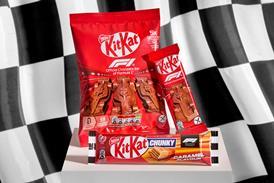





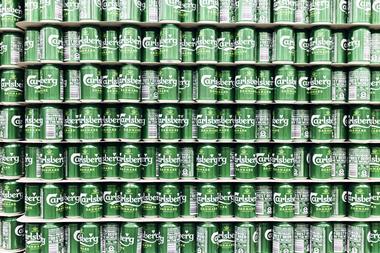

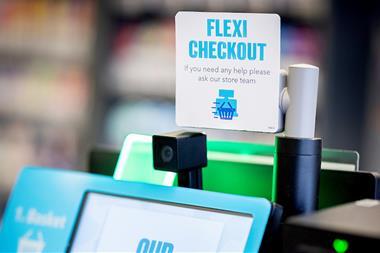


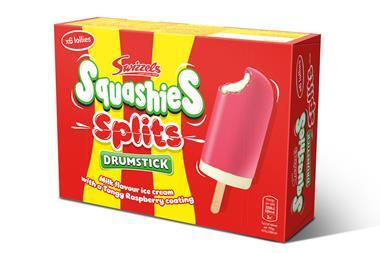
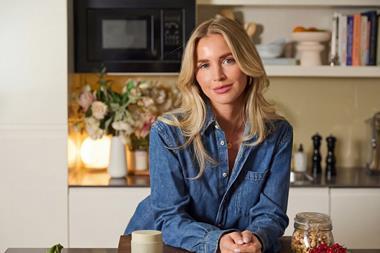
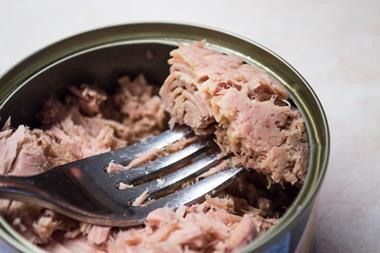
No comments yet